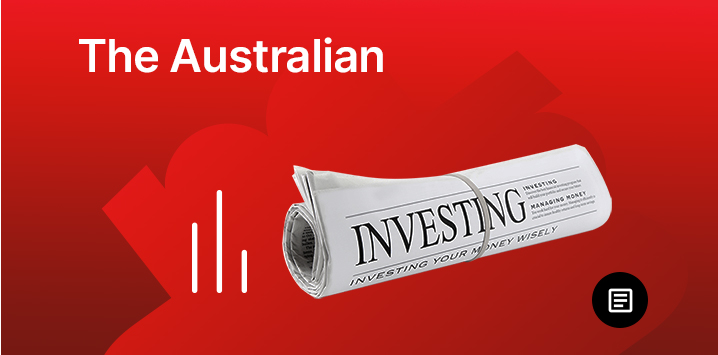
Profit with purpose – should governments own equity stakes?
I’ve long believed it’s the best system we have – socialism fails when it exhausts other people’s money.
But capitalism is far from perfect. We yearn for better infrastructure, healthcare, childcare, education, and aged care; yet the default approach to funding these essential services is for the government to take on debt and raise taxes, or to hope immigration drives economic prosperity.
This article was first published in The Australian on 29 August 2025.
What if there’s a better way? There’s no doubt developed nations face a reckoning. Mounting government debt ($US318 trillion, as of the last count) has saved economies from recession and collapse, which, in turn, has provided the environment for companies to generate trillions in profits. In Western democracies, however, those profits have been privatised, but the debt remains on the government’s balance sheet.
Irrespective of your personal reservations about the man, what if U.S. President Donald Trump is kicking off a vital conversation? Consider this: a model where the government or a sovereign wealth fund holds stakes in industries, particularly, for example, in Australia, those exploiting our finite mineral wealth. Could we fund a better society without overburdening taxpayers, while private owners still reap billions in profits?
What if we didn’t embed an economic model that privatises profits and socialises the losses? Might we see a better quality of life for all Australians?
The US, under Trump’s administration, is arguably pioneering a hybrid form of capitalism that blends private enterprise with public ownership by acquiring equity stakes in major corporations.
A prime example is the US government’s acquisition of a nearly 10 per cent stake in Intel, valued at around $US9 billion ($13bn), by converting unpaid construction grants from the 2022 CHIPS and Science Act into non-voting shares. This made the federal government Intel’s largest single shareholder.
Similarly, a “golden share” in U.S. Steel, secured as a condition for its acquisition by Japan’s Nippon Steel, grants significant control over governance and operations. Other deals include those with Nvidia and AMD, which must share 15 per cent of revenue from AI and advanced chip sales in China, while Apple has committed an additional US$100bn in US investments to avert tariffs.
Supporters argue the moves address national security and economic vulnerabilities. For example, semiconductors are vital for electronics and military applications and are necessary to counter China’s growing dominance.
Kevin Hassett, director of the National Economic Council, described the Intel deal as a “down payment” on a US sovereign wealth fund, similar to those in Europe, Asia, and the Middle East, which generate long-term revenue for public needs.
Commerce Secretary Howard Lutnick extended this logic to defence contractors like Lockheed Martin, noting that government contracts represent 97 per cent of Lockheed’s revenue and therefore justify a share of profits. Trump reckons these are all “savvy deals,” and he has hinted at expanding them to pharmaceuticals, rare earths mining, and beyond.
This model tackles a core flaw in conventional capitalism: the privatisation of profits and the socialisation of losses.
In Australia, ‘our’ mineral wealth enriches private owners while public services lag. A sovereign fund could redirect dividends to universal benefits such as healthcare and education. In the US, equity stakes ensure that taxpayers see returns on public investments, such as the CHIPS Act’s US$200bn in private investments and the creation of thousands of jobs. Even Bernie Sanders, an avowed socialist, argues that taxpayers deserve a return on investment from government grants.
Could this hybrid model fund improved social services without the imposition of crippling taxes? Could it foster a more equitable society while preserving capitalist incentives? Private owners might face diluted shares, but as Trump noted, they’d “still make billions,” bolstered by government-backed stability. In resource-rich nations like Australia, this could transform quality of life by channelling resource wealth into public goods, rather than letting profits concentrate among a few.
This is distinct from our current Future Fund, which is designed to provision for unfunded superannuation liabilities. This is about government taking direct stakes to fund social services and debt repayment. It would bypass the need for federal royalties, which are earned by the states, and would require a redrafting of the Constitution.
The debate will be fierce, as it is in the US, where conservatives view it as a betrayal of free-market principles. Critics like Senator Thom Tillis liken it to Soviet-era enterprises, while libertarian think tanks like the Cato Institute warn that government ownership introduces inefficiencies and risks corruption. Economists will argue it deters investors and suppresses market forces essential for growth. And what of the possibility that political motives overshadow economic merit?
Internationally, China and Russia invest heavily in domestic firms, while European democracies support strategic sectors such as aerospace. Yet critics worry this could foster cronyism, where deals favour political allies. Clearly, robust oversight and safeguards would be essential to prevent abuse.
Another concern is the precedent for future administrations. A Democratic president might use stakes to enforce green policies or diversity mandates, raising questions about consistency and expertise. Careful design would be required to avoid mismanagement and ensure transparency.
Despite these challenges, hybrid capitalism might be a pragmatic evolution. By emulating successful sovereign funds, nations can harness private innovation for public good, funding social protections without stifling growth. In Australia, it could leverage resource wealth to build a fairer society, ensuring broader prosperity. Whether it delivers equitable benefits or risks authoritarian overreach depends on execution, but the conversation is urgent.
As Western democracies face undeniable fiscal and social strains, rethinking capitalism’s balance between profit and public good could be Trump’s legacy.
This article was first published in The Australian on 29 August 2025.
Capitalism, for all its strengths, has flaws.